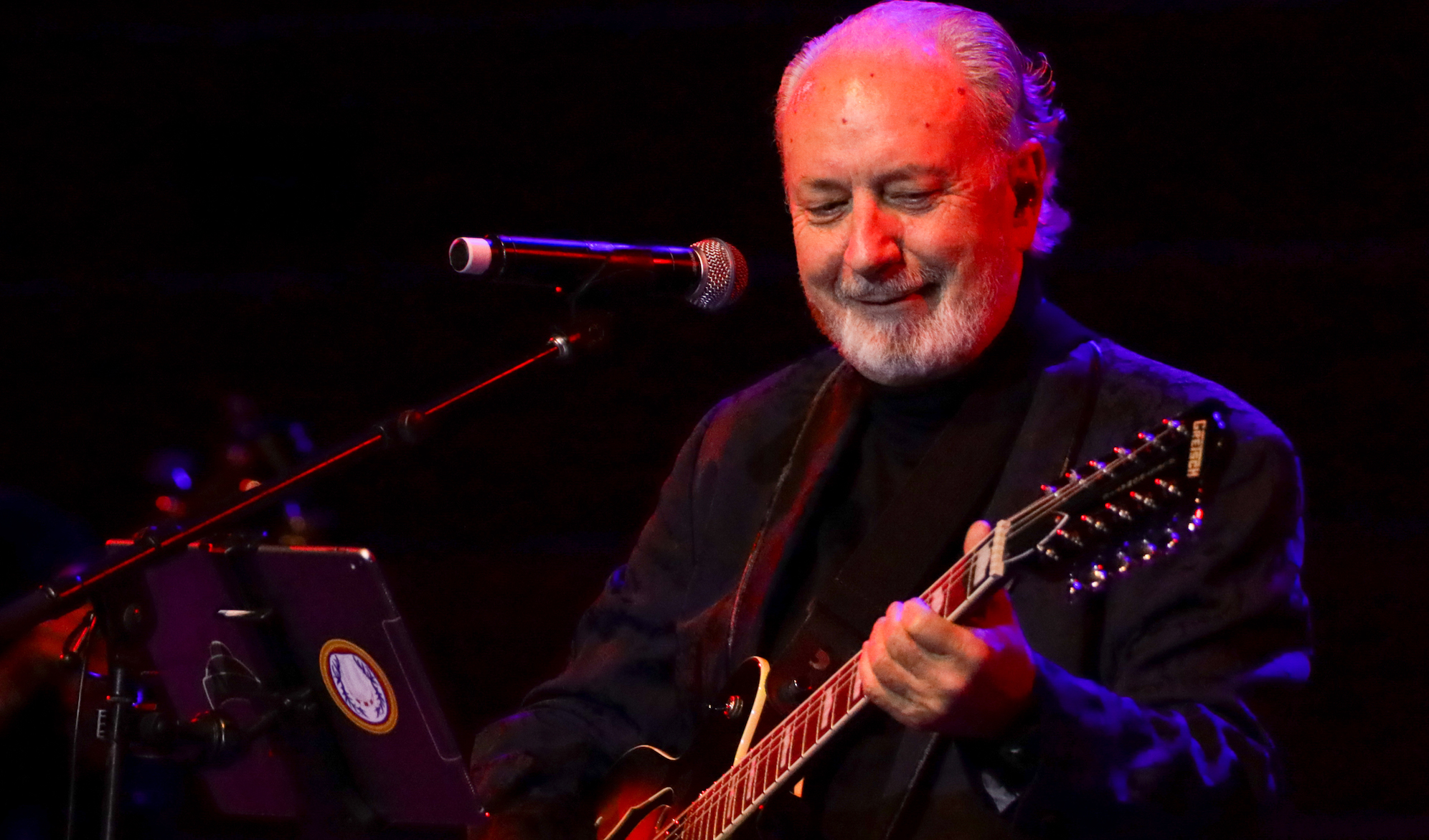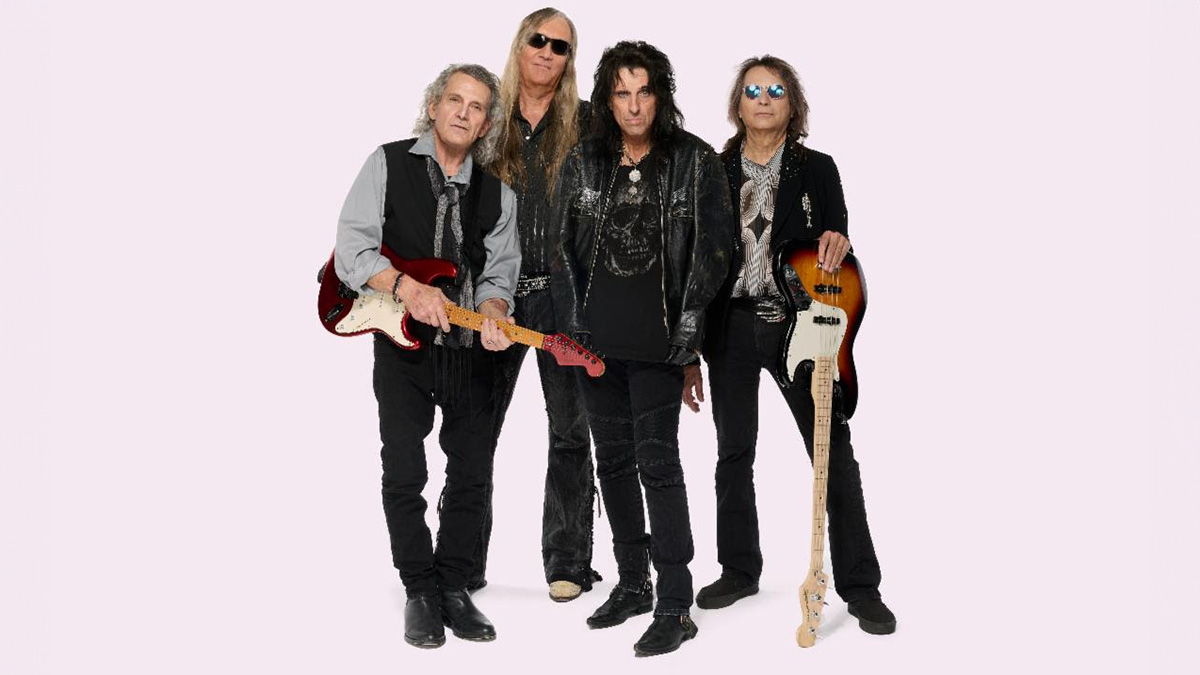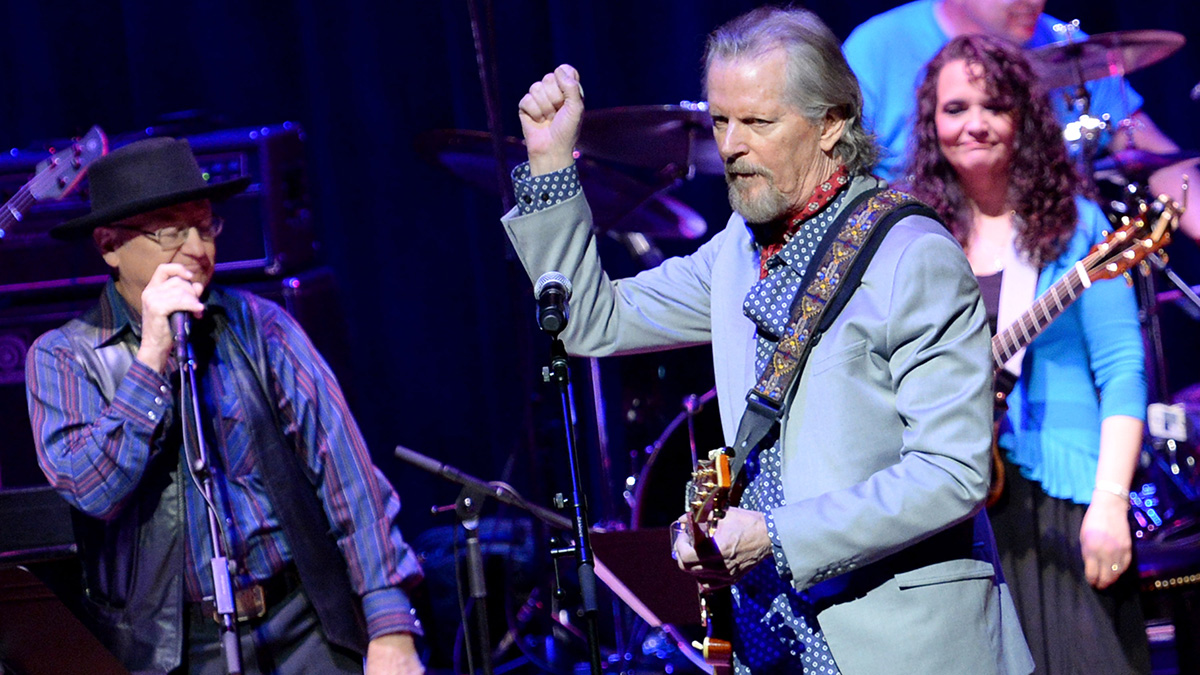Michael Nesmith, Monkees guitarist, dies at 78
Nesmith – who also made a significant mark on country-rock with the First National Band – passed away "peacefully and of natural causes," his family said

Michael Nesmith – guitarist and songwriter for The Monkees – has died at the age of 78.
“With Infinite Love we announce that Michael Nesmith has passed away this morning in his home, surrounded by family, peacefully and of natural causes,” Nesmith's family said in a statement. “We ask that you respect our privacy at this time and we thank you for the love and light that all of you have shown him and us.”
With his trademark wool hat, cool attitude and unmistakable custom, 12-string Gretsch electric guitar, Nesmith was a key member of the Monkees, the made-for-TV pop-rock band formed in 1965 that capitalized on the still-ongoing British Invasion with a string of mid/late-'60s smash hits, like Last Train to Clarksville, Daydream Believer and the still-ubiquitous I'm a Believer.
An accomplished songwriter in his own right, though, Nesmith – along with the group's other three members – quickly grew resentful of the band's manufactured image and lack of artistic control. It was Nesmith who led the group's rebellion against, and dismissal of, producer Don Kirshner – who up to that point exerted near-total control of the band's recordings – in early 1967.
Though the Monkees never again reached the stratospheric commercial success they enjoyed from 1965 to early 1967 following Kirshner's ouster, they continued to enjoy minor hits, many of which – The Girl I Knew Somewhere, Mary, Mary, and Listen to the Band among them – were penned by Nesmith.
Born in Houston, Texas in 1942, Nesmith served in the Air Force, before picking up the guitar in the early '60s, after receiving one from his parents as a Christmas gift. After moving to Los Angeles around that time, Nesmith began playing folk clubs before hearing – in 1965 – about auditions for a television show centered around a fictional band called The Monkees.
Prior to and during the peak of the Monkees' success, Nesmith's songs were covered prominently by a wide range of artists. Mary, Mary was recorded by the Paul Butterfield Blues Band, while Different Drum and Some of Shelly's Blues were recorded by Linda Ronstadt.
Get The Pick Newsletter
All the latest guitar news, interviews, lessons, reviews, deals and more, direct to your inbox!
Following his departure from the Monkees in 1970, Nesmith formed the First National Band, which – despite only releasing three albums and achieving limited commercial success – helped shape the sun-soaked country-rock sound that the Eagles would, years later, take to arenas, stadiums, and the top of the charts.
After the First National Band's dissolution in 1972, Nesmith continued his eclectic solo career, dabbling, for instance, in disco (1979's Infinite Rider on the Big Dogma) and electronic textures (2005's Rays.)
Left a significant fortune by his mother, Bette Nesmith Graham (inventor of Liquid Paper), after her death in 1980, Nesmith also became a notable businessman, investing in movies like Repo Man and Tapeheads, and founding the Pacific Arts Corporation, a pioneer in home video.
Though he declined to be a full participant in the Monkees' 1986-1989 reunion, he performed with the group's other three members – Micky Dolenz, Davy Jones and Peter Tork – at the encores of two Los Angeles Monkees shows in 1986 and 1989.
Nesmith was an on-again, off-again presence in the group's various recordings and live shows from 1996-2012, before re-teaming with Dolenz and Tork to tour as The Monkees following Jones' death in 2012.
Nesmith and Dolenz – before and after Tork's death in 2019 – toured as The Monkees Present: The Mike and Micky Show, playing their final show less than a month ago, on November 14, at the Greek Theatre in Los Angeles.
When asked by Guitar World in 2013 about his feelings on the Monkees' legacy, how it had changed over the years, and if he ever felt condescended to about being in the band, Nesmith had this to say:
"No, I never thought of the Monkees negatively. The public rejection of the show and the band was hard to take but understandable. People were confused in those early days of TV, especially about what constituted authenticity, and there was a fear that corporate interests were at work and somehow manufacturing a hit.
"Everyone in the arts knows this is impossible, but it was an easy sell and an easy scandal to create by the press of the times. So a few journalists led the charge of 'condescension.'
"But as you point out, that charge fell on many deaf ears, especially among the kids at the time who not only got a good taste of well-made music but also understood TV and where it fit in their life.
"Many very accomplished players started their musical careers based on those Monkees shows and records, and I feel most gratified to have been a part of that. It is a nice legacy, and I'm proud of it and happy to see it finally get the recognition."
Jackson is an Associate Editor at GuitarWorld.com. He’s been writing and editing stories about new gear, technique and guitar-driven music both old and new since 2014, and has also written extensively on the same topics for Guitar Player. Elsewhere, his album reviews and essays have appeared in Louder and Unrecorded. Though open to music of all kinds, his greatest love has always been indie, and everything that falls under its massive umbrella. To that end, you can find him on Twitter crowing about whatever great new guitar band you need to drop everything to hear right now.
“Such a rare piece”: Dave Navarro has chosen the guitar he’s using to record his first post-Jane’s Addiction material – and it’s a historic build
“The best guitar player I ever heard”: Nashville guitar extraordinaire Mac Gayden – who worked with Bob Dylan, Elvis, Linda Ronstadt and Simon & Garfunkel – dies at 83











